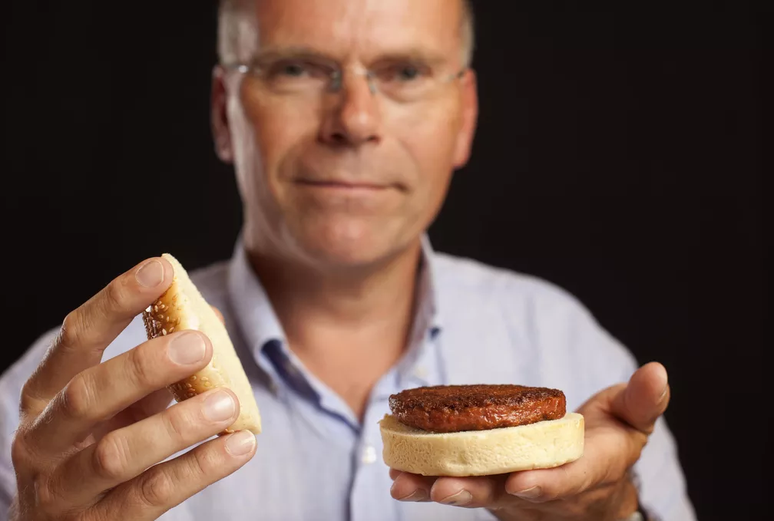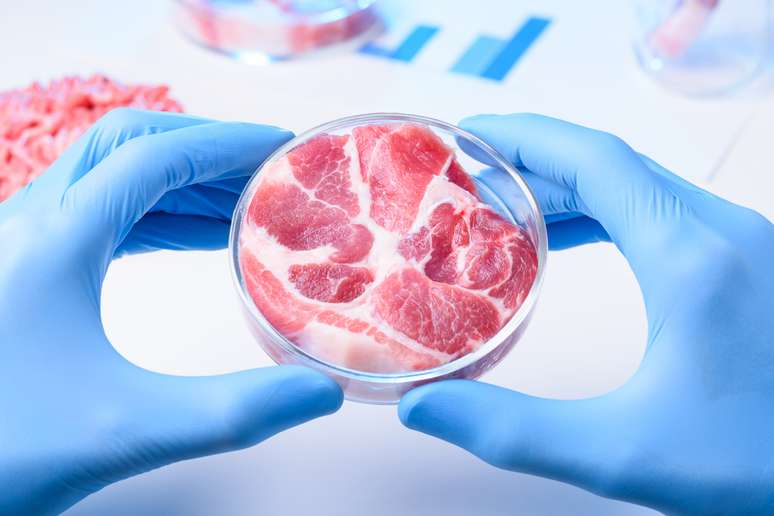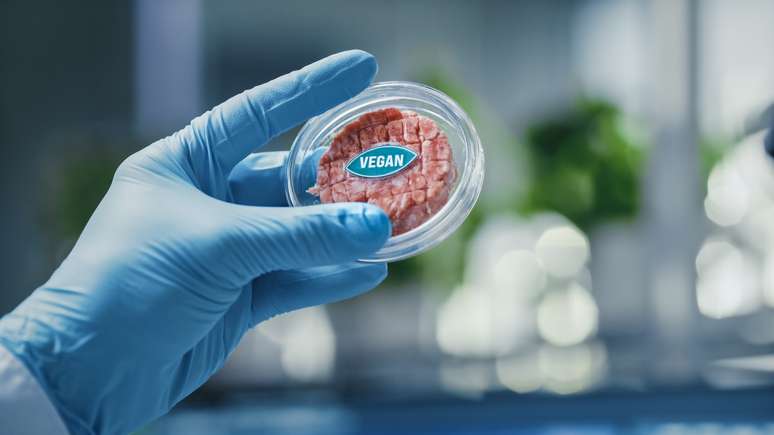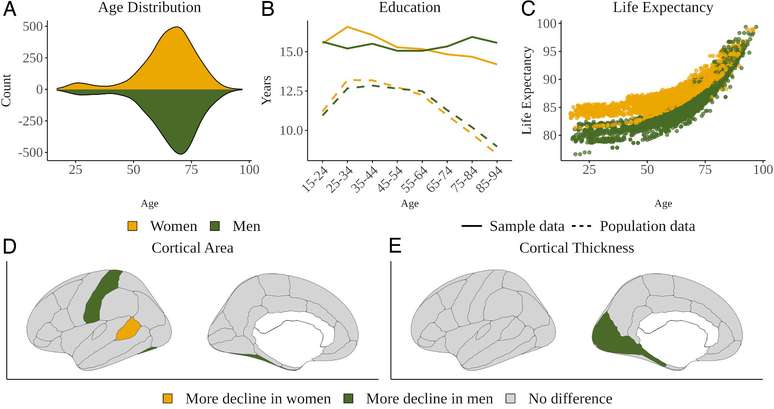Its price has decreased over the years and it could reach the Brazilian market in 2024
More and more large companies and meat producers are betting on the production of laboratory meat, a completely vegan option and that it would taste very similar to the animal proteins we are used to.
However, price seemed to be a major obstacle, pharmacologist Mark Post’s first lab-made burger cost US$ 300 thousand (R$ 1.5 million, at current exchange rates) in 2011. After many years and a lot of research, in 2019 the cost of the hamburger dropped to $8.80 (BRL 48)and this value tends to decrease more and more, especially with the adjustment of the product.
How is laboratory meat produced?
Mark Post, explained that the the meat is really beef, however, is developed in vitro. The biologist said the product is, in fact, made from muscle cells taken from the tissue of a cow and has evolved since its prototype.

“We are improving the protein content, giving the meat its colour. We are working on adipose (fat) tissue cultures, from the same stamina cells, but follow a different path to specialization. The fat adds flavor and texture to the meat,” Mark Post explained to EPTV
The professor also explained that a unit of hamburger consists of approx 10 billion cells. Once they’re large enough, they’re assembled into groups of 1.5 million cells to form tiny muscle tissues, which are a lot like the muscle fibers in a steak.
In Brazil
In an interview with Vegan Business, Raquel Casseli, director of corporate engagement at The Good Food Institute (GFI)stated that the Brazil is expected to start producing and selling lab-grown meat as early as 2024as we have some ongoing research and projects in this area, both on alternative proteins and plant-based foods.
And it’s not just red meat that’s produced in a lab. Aline Bruna da Silva, professor at the Federal Center for Technological Education of Minas Gerais, developed the first prototype of cultured chicken meat. He used a nanomaterial made of edible cellulose.
In 2017, Marcelo Szpilman, marine biologist and founder of Aquário Marinho do Rio, created a prototype of protein dough for breading, the goal is to achieve the structure of a fish fillet.
So, in the next few years, we can expect the development of many different types of lab-made proteins.
Environmental impact

According to studies conducted by the University of Oxford and the University of Amsterdam, the production of laboratory meat It has 96% less greenhouse gas emissions compared to the emissions caused by the animal meat industry.
Also, the cultured meat industry needs 45% less energy expenditure and approximately 90% less water consumption.
Despite not being close to its final stage, the product also promises save many animal lives AND reduce animal cruelty.
Source: Terra
Ben Stock is a lifestyle journalist and author at Gossipify. He writes about topics such as health, wellness, travel, food and home decor. He provides practical advice and inspiration to improve well-being, keeps readers up to date with latest lifestyle news and trends, known for his engaging writing style, in-depth analysis and unique perspectives.





![Tomorrow belongs to us: What awaits you in the episodes of 2052 and 2053 on October 15, 2025 [SPOILERS] Tomorrow belongs to us: What awaits you in the episodes of 2052 and 2053 on October 15, 2025 [SPOILERS]](https://fr.web.img6.acsta.net/img/39/95/3995a2d00abbf3c01161818d01a95388.jpg)



